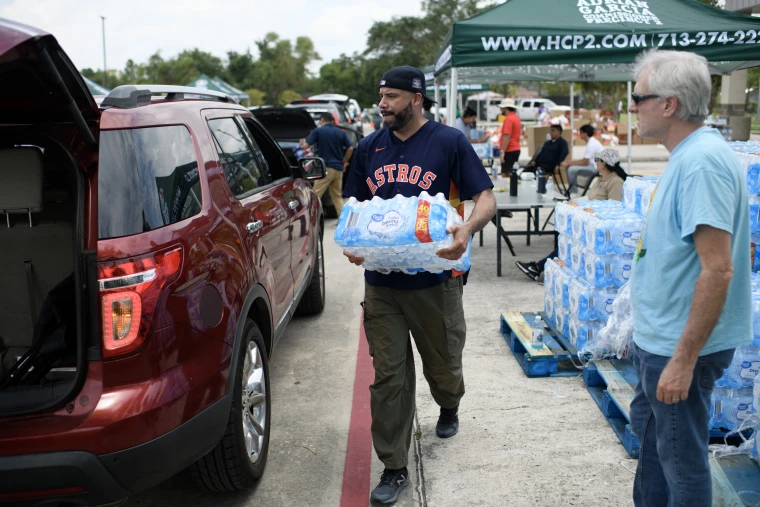As days of sweltering heat persist, Houstonians have directed their frustration over the lack of electricity toward local utility company CenterPoint Energy, which is under increased scrutiny for a perceived slow response after Hurricane Beryl landed on the Gulf Coast of Texas this week.
More than 800,000 customers remained without power and electricity Friday afternoon, more than four days after the hurricane-flooded streets and left more than 2 million people without running air conditioning as temperatures soared into the 90s.
“It’s ridiculous. We’re sleeping in hot rooms,” said Houston resident Ruth Gonzalez, who has been taking cold showers to sleep at night.
She blames the utility company and the storm for the upheaval.
“What in the world are you going to do for us, and how are we going to be reimbursed for everything that we’re losing?” she asked of CenterPoint, referring to the $600 worth of food they’ve thrown away since the storm.
Gonzalez, along with her fiancé, Guy Vasquez, 56, pawned their diamond-cluster wedding bands this week just for gas money and food.
“You gotta do what you gotta do to keep the kids fat and full,” said Vasquez, referring to the three grandchildren they are helping to raise.
The storm has been blamed for at least 11 deaths in the U.S. and nine in the Caribbean. At least three people were killed in metropolitan Houston, weather officials have said.
Despite the public outrage, Darin Carroll, senior vice president of operations at CenterPoint, told NBC News this week that it was prepared for the storm and had brought in crews from outside Houston to mobilize as soon as the storm passed.
“We acknowledge what it must be like to live in Texas in July and to not have electricity,” he said in the interview, adding that it is the fastest the company has ever restored power to about 1 million homes.
CenterPoint Energy said in a news release Thursday that more than 80% of affected customers should have power and electricity by Sunday.
However, some areas with significant structural damage could experience prolonged outages while crews work to install thousands of new distribution poles and overhead conductors, which are required to transport electrical energy.
Carroll said the storm “caught the entire service territory with full force,” with downed trees bringing down power lines across the city.
“In a lot of cases, it’s not just branches; these are entire trees that have to be cleaned up before we can do the restoration,” he said.
NBC News

